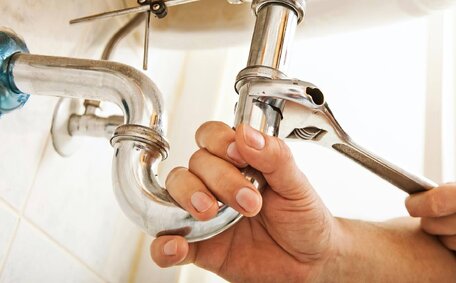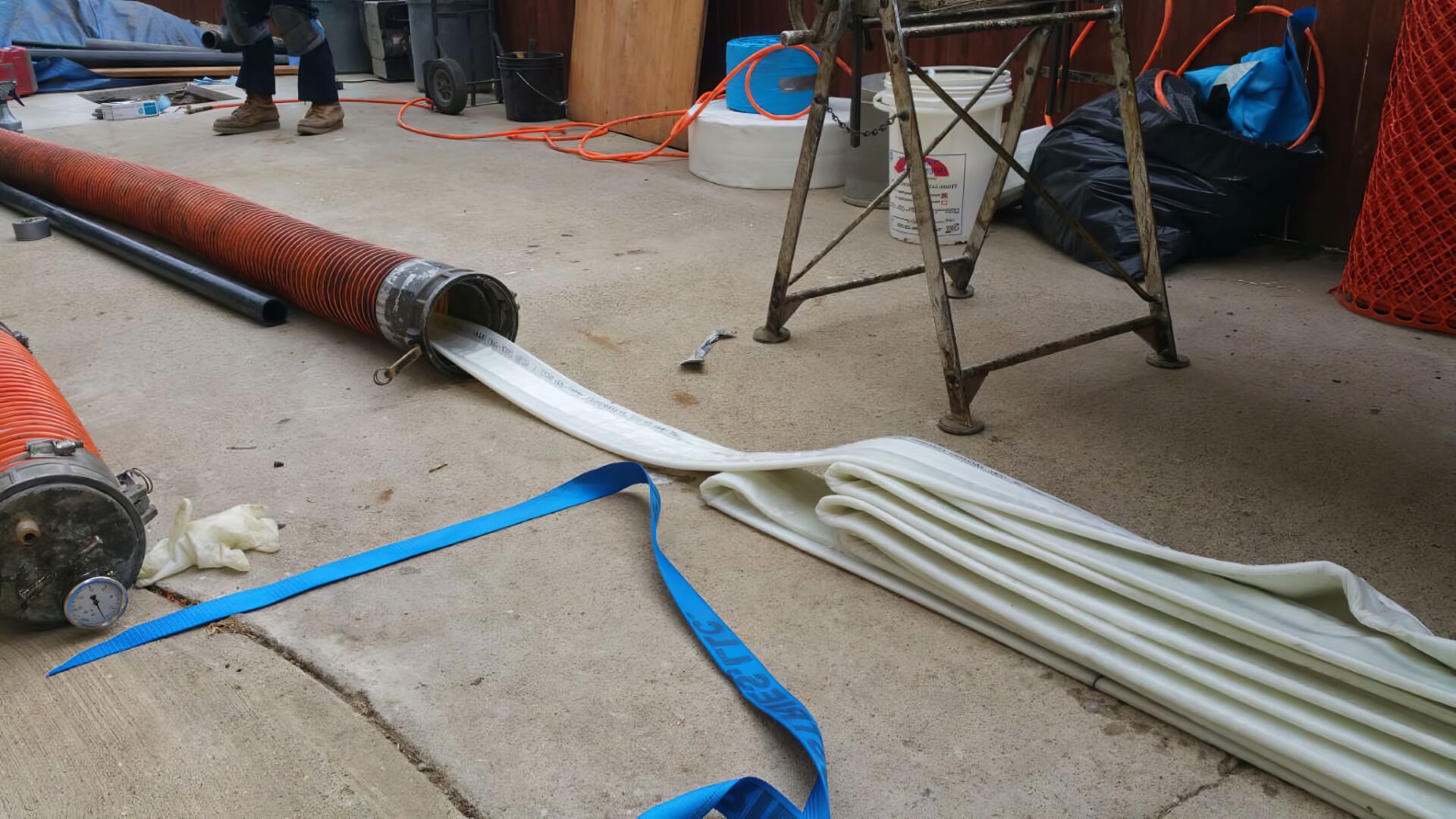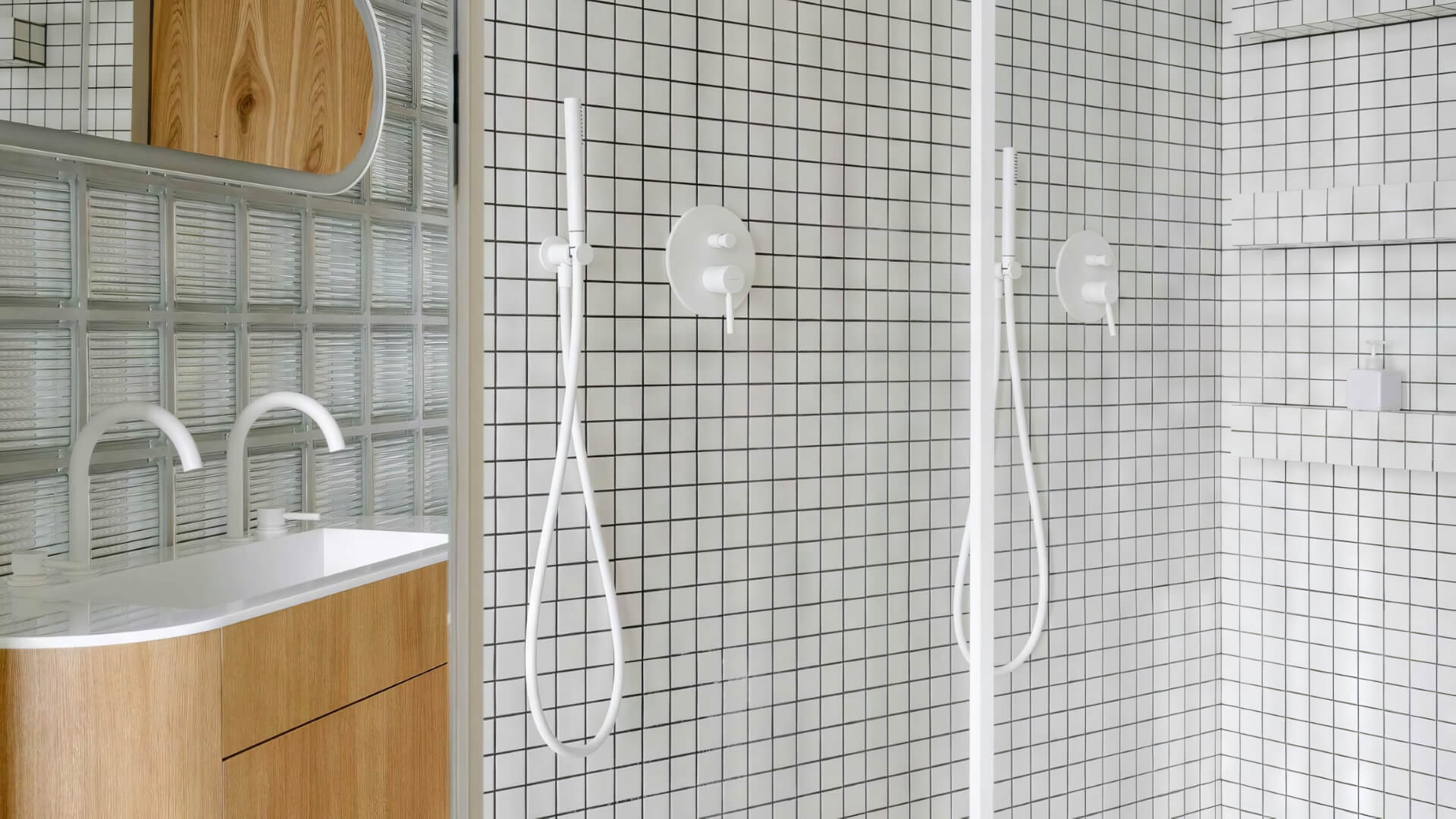Know Your Plumbing System and Where the Shutoff Valves Are
Homeowners must know how to react to plumbing emergencies, and locating as well as labelling the main water shutoff valve is essential. This knowledge allows for quick water termination, preventing plumbing problems and expensive water damage.
Shutoff valves control water flow to the whole house or specific areas, crucial during emergencies such as burst pipes or leaks.
Here are some quick tips to guide you in locating your main shutoff valve:
- Check near your water metre - The principal water valve is generally positioned on the domicile side of the metre.
- Look along the water service line - Follow the pipe coming into your home to find the shutoff valve.
- Inspect your basement - Main shutoffs are often located in utility areas or near water heaters.
- Search garage walls - Valves may be mounted on an interior wall if lines run through the garage.
- Check exterior faucets - Seek out a round valve box situated close by an outside your home’s tap.
Once the valve is located, confirming it operates smoothly is vital. A stuck valve may delay shutting off the water supply, risking damage to your home. Yearly operation of the valve ensures your plumbing system is well-maintained, safeguarded against water damage, and lubricated when needed.
Mark and make accessible individual fixture shutoffs under sinks and behind toilets to isolate leaks without shutting off the home’s entire water supply during emergencies. Take care to maintain your emergency plumbing kit, stocked with tools, flashlights, towels, and a 24/7 emergency plumber’s contact to minimise damage.
Quickly addressing small leaks is essential to avoid water waste, which can hike up bills and affect household efficiency. Rapidly cutting off your home’s water supply in emergencies is vital to evade expensive repairs.
Conduct Regular Plumbing Inspections and Maintenance
Regular inspections and maintenance are key to spotting potential water leaks that could otherwise lead to emergencies and put your home at risk. Schedule biannual thorough checkups and perform daily visual checks to detect any leaks or damage.
Pay particular attention to the following maintenance aspects, as issues can arise without warning:
- Check water pressure at several faucets - Significant drops may be due to buildup which can impede flow in your pipes.
- Examine your plumbing pipes thoroughly, searching for any signs of cracks or corrosion.
- Ensure fixtures such as your taps and showerheads aren’t leaking, as persistent drips can waste water your household could otherwise use efficiently.
- Check for soft spots under sinks indicating potential leaks.
- Regularly flush your toilet to ensure it handles toilet paper correctly and verify the water flow is forceful, indicating no hidden problems.
- Inspect the water heater for rust and leaks.
- Ensure your septic system, including sump pumps, are operating properly.
- Clear any signs of a clogged drain where harsh chemicals can accumulate, including blockages from your garbage disposal.
- Clean out sediment in aerators and shower heads.
Engaging in regular plumbing maintenance every 1-2 years is key to identify and rectify problems early, keeping your plumbing in prime condition before emergencies unfold. A plumber can also use specialised tools like pipe cameras for in-depth inspections.
Consider having main sewer lines and your septic tank’s drain field video inspected every 3 years. Tree roots, cracks and misaligned joints can cause water backups in major sewer lines if not addressed early.
Common Causes of Plumbing Emergencies
Common plumbing emergencies that homeowners face include:
Clogged Drains - Accumulation of hair, food particles, and foreign objects can damage your pipes and lead to clogged drains.
Water draining slowly signals that your drains could become clogged, signaling impending plumbing problems. Using drain cleaners or a drain snake can often clear simple clogs. For recurring or significant obstructions in your drains, enlist the expertise of a professional drain service.
Leaky Pipes - Age, damage and corrosion can lead to cracks and leaks, as pipes can deteriorate over time. Catch these early by looking for dripping water, which if neglected, can cause extensive damage to your walls or create musty smells. A plumber can repair damaged sections or joints.
Burst Pipes - Extreme cold or excessive water pressure can cause pipes to rupture, resulting in disruptions at your cold water supply valve. Be conversant with how to turn off main water supply valve swiftly in case of an emergency. For burst pipes, it’s vital to call professional help immediately to avert structural damage.
Toilet Problems - Toilets that run continuously, have a weak flush or leak from the tank can indicates issues with flappers, fill valves or other internal components. When pondering what do about complex toilet issues, a plumber can take the reins to diagnose and repair the specific problem.
Water Heater Malfunctions - Sediment buildup and corrosion can wreak havoc on your hot water system, leading to malfunctions and leaks. Annual inspections help detect problems early. For total failures, your plumber can often replace heating elements or thermostats.
Sump Pump Failures - Sump pumps that don’t activate during heavy rain can lead to water inundating basements, potentially damaging water pipes. Test pumps monthly and have backup batteries/generators. For failures, a plumbing contractor can overhaul or replace the pump.
Preventive Measures to Avoid Plumbing Emergencies
The following are preventive tips to sidestep future plumbing emergencies:
- Avoid pouring fats, oils, and grease down your drain; these can corrode your pipes and create serious blockages over time, harming your plumbing.
- Use drain screens in sinks and baths to catch hair and debris before they can harm your pipes.
- Never use your toilet as a trash can; items such as wipes and feminine hygiene products should be disposed of correctly in the bin.
- Install sediment traps to protect your faucets from mineral buildup.
- Wrap up exposed pipes to shield them from freezing during cold spells, ensuring they remain intact even in harsh conditions.
- Clean out drains regularly using baking soda, vinegar or enzymatic drain cleaners.
- Maintain a plunger within easy reach to quickly solve any minor blockages in your toilet.
- Inspect hoses and supply lines for wear and have them replaced.
- Use pipe insulation around your water heater to reduce corrosion.
- Have a plumber do annual inspections of your plumbing systems.
It’s crucial to adopt preventive tactics, enabling you to forestall issues that otherwise might transform into plumbing emergencies your wallet might regret. An ounce of prevention is truly the best approach when it comes to plumbing disasters.
DIY Plumbing Maintenance
There are several DIY plumbing maintenance tasks homeowners can perform regularly to help prevent emergencies and keep their systems running smoothly. This allows you to catch minor issues before they escalate into major problems.
Here are some simple maintenance tips to prevent issues from trickling down your plumbing system:
- Check for leaks - Inspect exposed pipes, joints, valves and fittings for drips or wet spots. Identify leaks promptly, as swift action can prevent further damage by minimising erosion to materials.
- Clear sinks and tub drains - Hair and soap should go directly into the bin, not down the drain, but a monthly use of a plunger or drain snake can remove any buildup. Actively work to avoid clogs to prevent water backup.
- Flush toilets - Check for adequate flushing power. Use a toilet plunger on weak flushes to clear any blockages.
- Clean aerators - Unscrew and rinse out sink faucet aerators every few months to maintain water pressure.
- Inspect hoses - Check washers and gaskets on sink and toilet hoses for cracks. Replace worn hoses.
- Test sump pumps - Pour water into the sump pit monthly to ensure pumps turn on reliably.
Tasks such as measuring water pressure and clearing drains with augers can help avert emergencies; a licensed plumber can assist in replacing valves and maintaining water heaters. DIY repairs on core systems can end up being too hard and worsen issues if not done properly.
Regular basic maintenance is recommended, as well as locating a local plumber for professional assistance to prevent plumbing disasters and simplify your life.
When to Call a tuations when it’s essential to call a licenced professional plumber rather than attempting a DIY fix. Homeowners can often address minor leaks or drain clogs, but complex issues demand advanced technical skills and equipment.
Attempting to fix major plumbing problems yourself can result in injury, significant property damage, and increased repair costs. Having a professional like Petersham Plumbing handle complex jobs also ensures work is backed by guarantees and insurance.
While these tips can prevent plumbing issues, here are signs it’s wise to call in experts:
- Major leaks - A burst pipe or leaking hot water tank requires immediate shutoff and containment. Attempting repairs on your own can be dangerous.
- Low or no water pressure - Internal blockages or water line issues causing pressure drops require diagnosis and clearing with specialised pipe augers and pressure jetting equipment.
- Sewer line backups - Professional drain cleaning with powerful hydro jetting and pipe video inspection is needed to clear clogs, assess damage and prevent recurrence.
- Gas leaks - Natural gas leaks can be deadly. Evacuate immediately and call the gas company or emergency services to inspect.
- Major floods - For serious water damage from burst pipes, leaks or appliance failures, water extraction professionals are needed to dry out areas thoroughly.
- No hot water - Diagnosing and repairing water heater failures, including gas, electric and solar units, calls for an expert plumber’s skills.
For escalated plumbing problems, your homeowners insurance may cover the cost of repairs done by a professional plumber. It’s practical to build a rapport with a dependable local plumbing company such as Petersham Plumbing. Our Gold Coast team, fully licensed and professional, provides immediate 24/7 emergency services.
Contact us anytime for support with any plumbing services required, whether for complex issues or standard maintenance. We possess the technical skills, tools, and training needed to diagnose and fix any issues swiftly and thoroughly. For all your plumbing needs, reach out to us on 1300 349 338 or at jobs@petershamplumbingservices.com.au.






